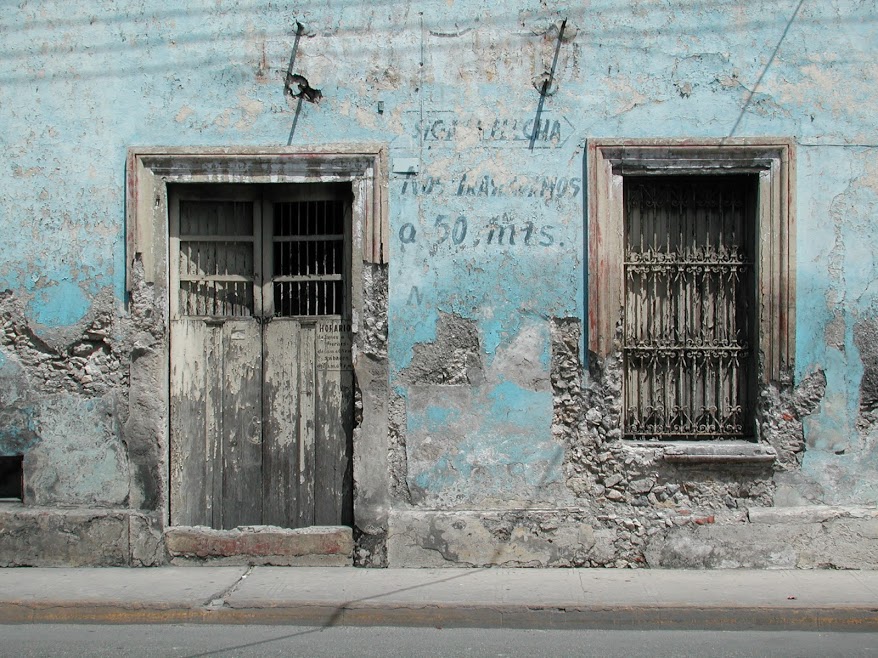Quest for a Hammock
28 August 2001
In Mérida, most people sleep in hammocks. Walk down any residential street and look in the windows and you’ll see hammocks strung all over the room. What I’m getting at is that I finally caved in and bought a hammock. Now sit back and listen, ’cause here’s my advice…
If you’re in Mérida, you’ll be approached every five minutes by someone wanting to sell you a hammock off the street. Do not buy it! That man is crazy! The quality of hammock you get from a wandering hammock guy is a mystery until you try it out. And you’re not going to be trying it out until after you’ve paid for it. Generally speaking, they’re pretty bad. Locals refer to them as ‘hospital hammocks’ because that’s where you end up if you use them. Go to a hammock shop with a good reputation. If they can show you a photo album of them and their grandparents chopping down sisal (henequen cactus), stripping the fibre, and making hammocks, it’s a pretty safe bet that the hammocks are good.So Julio Armando pulled out a few hammocks, strung them up, proudly displays the threading to show there were no flaws, and got me to jump in and take it for a spin. Hammocks come in lots of sizes: single, double, matrimonial, and matrimonial especial. The difference is the number of pairs of end threads. Matrimonial has about 150 pairs of end threads, whereas a single has about 50 and a double has about 100. Keep in mind that these sizes were designed for people of Mayan stature, which is a lot smaller than your typical Canadian, or Mestizo Mexican.
Unfortunately, the walls in the apartment must be the only ones in the whole city that doesn’t have hammock hooks! Even a lot of hotels in Mérida provide hooks! I ran across the street to the Tlapalería¹ and using hand signals and pantomime, bought exactly five metres of nylon rope. Using those engineering skills I spent so much effort learning at UVic, and some knots I learned in Boy Scouts, I rigged up a makeshift hammock hookup. Unfortunately, the only available post to string a rope around was the chunk of wall between the balcony door and the window, which meant that both the door and the window had to be open to use it, and I had to pull the mosquito screen out of the window anytime I wanted to use the hammock.
About Mérida’s weather: Maybe you people back home have looked at the temperatures in Mérida and thought ‘Wow! They spend the whole summer in the mid to upper 30s! It’s just like Cancún!’ True, but it’s also insanely humid, which means you’re covered in sweat 24 hours a day—imagine waking up sticky and sweaty every morning; that’s why most people use hammocks. What’s more, unlike Cancún, there are thunderstorms every afternoon between about four and seven. You can set your watch by them. During these thunderstorms, it rains. A lot. So much, in fact, that having the window or door open even a centimetre spells certain doom. In short, the hammock is no longer up. Back to the drawing board.
A curious side note here. If you wander the streets of Mérida enough, you’ll notice an inordinate number of people with one or both eyes missing. The reason for this is quite interesting. Mérida is famous around the world for its hammocks. And to make hammocks you need henequen fibre. The sisal cactus from which you get it has very, very sharp, needle-like barbs. You get the point.
Glossary
- Tlapalería: A sort of little roadside hardware store.